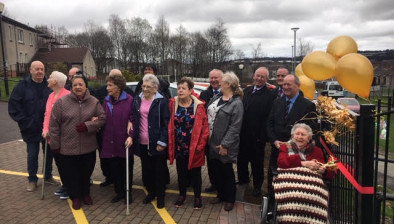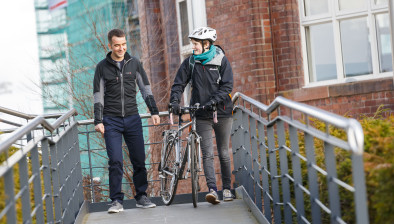New housing developments leaving Scots ‘car sick’

Housing developers are locking people into unhealthy and expensive car-dependent lifestyles by failing to provide infrastructure or access to healthier travel options including walking, cycling or car sharing, according to new research.
A study by walking charity Living Streets Scotland details significant failings in the location and design of housing, which limited choices for residents in terms of walking, cycling, public transport and car clubs.
The report, ‘Progress on Low Car Neighbourhoods in Scotland’, follows a 12-month investigation into how easily people could live in new developments without a car.
The research looked at top level planning policies, reviewed examples of best practice and interviewed residents.
New developments in Glasgow, Edinburgh, Dundee and West Lothian are criticised for poor pavements, limited bus services and a lack of links for walkers and cyclists.
According to the study, Whitfield in Dundee suffered from “missing pedestrian and cycling infrastructure”, “pavement parking” and “significant traffic congestion at school drop off/pickup”.
Winchburgh in West Lothian had “no crossing points” and “missing pavements” while “bus services do not meet local needs”.
Similar issues blighted Edinburgh’s West Pilton Crescent where “anti-social behaviour on cycle path” and “no marked disabled parking” were also highlighted.

The Athletes’ Village in Glasgow was flagged for having “no local shop, reliance on visiting ice cream van”, “no lighting on sections of traffic-free paths” and “missing pedestrian links/footways”.
The Chapelton development in Aberdeenshire was held as an exemplar with its “pedestrian friendly environment”, “proliferation of crossing places” and “high quality traffic free paths”.
Stuart Hay, director of Living Streets Scotland, said: “Local planning departments are storing up massive problems in terms of congestion, air pollution and inactivity by building car-dependence into new housing developments.
“People deserve a choice to walk, cycle or take public transport; instead developers are delivering housing in the wrong places, with the wrong infrastructure, and with very poor access to local shops and public transport.”
The charity is calling for simple and low cost measures from developers, including well-maintained networks of footpaths.
Hay added: “Councils and developers should be going back to recent developments to fix issues and learn from their mistakes, something that isn’t happening at the moment.”
Susan Jeynes, CoMobility specialist for CoMoUK, for whom the study was carried out, said: “It is great that Scotland has the policies in place to support reducing reliance on private cars in new developments and encourage more active lifestyles; however, this study shows there is a gap between the policy and the reality.
“The report shows there is potential demand for car clubs in new developments that needs to be explored. CoMoUK is keen to work with planners and developers to help identify how new developments can benefit from designing in shared transport, both for the residents and the economic opportunity for developers.”









